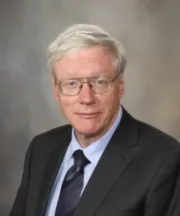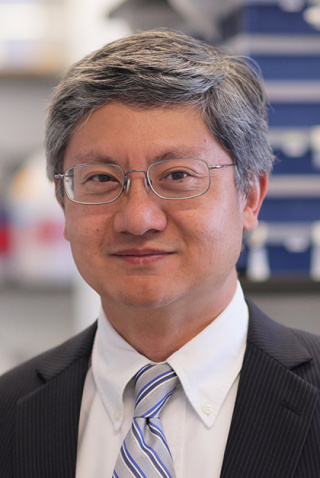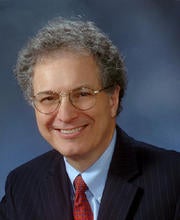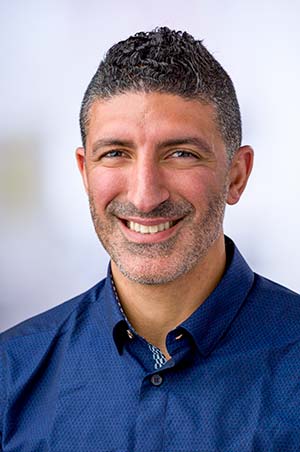The Center for Cell Reprogramming: Seminar Series
All seminars are on Wednesdays at 11:00am
(*Unless otherwise noted)
December 8, 2021
James Kirkland, MD, PhD
Title: Aging, Cellular Senescence, and Senolytics: The Path to Translation

Dr. Kirkland’s research is on the contribution of fundamental aging processes, particularly cellular senescence, to age-related and chronic diseases and development of agents and strategies for targeting fundamental aging mechanisms to treat age- and chronic disease-related conditions and morbidities.
Additional research areas include molecular and physiological mechanisms of age-related adipose tissue and metabolic dysfunction, frailty, and loss of resilience to infections and acute diseases in old age.
Dr. Kirkland’s laboratory published the first article about agents that clear senescent cells – senolytic drugs. Dr. Kirkland demonstrated that senolytic agents enhance healthspan and delay, prevent, or alleviate multiple age-related disorders and diseases in mouse models. He published the first clinical trials of senolytic drugs and is currently conducting multiple clinical trials of senolytics, including three clinical trials for COVID-19. He has more than 225 publications and holds over 20 patents.
Director of the Kogod Center on Aging at Mayo Clinic Noaber Foundation Professor of Aging Research
February 9, 2022
Michael M. Shen, PhD
Title: Investigating Lineage Plasticity Using Patient-derived Organoid Models of Bladder Cancer

The Shen lab investigates the molecular mechanisms of mammalian development and cancer using in vivo analyses of genetically-engineered mouse models.
The lab studies have expanded significantly to encompass analyses of prostate epithelial progenitor cells and their roles in organogenesis and tissue regeneration, focusing on the role of the Nkx3.1 transcriptional regulator as well as analysis of cell types of origin for prostate cancer. These studies have led to the identification of a luminal epithelial stem cell as well as support for a luminal cell of origin for prostate cancer, and most recently to the establishment of an organoid culture system for mouse and human prostate epithelium.
Most recently, the scope of Dr. Shen’s research has expanded to molecular studies of bladder cancer evolution and drug response through the analysis of patient-derived bladder tumor organoids.
Director of Graduate Studies, Dept. of Genetics & Development Professor of Medical Sciences at Columbia University
February 22, 2022*
Joseph Boventre, MD, PhD
Title: Human Kidney Organoids and Organoid Derived Cells to Interrogate Kidney Biology

Dr. Bonventre has had a long-standing interest in various aspects of cellular injury and repair mechanisms in the kidney, in particular the role of inflammation, biomarkers and stem cells.
Bonventre established the origin of the epithelial cells that repair the kidney after injury as dedifferentiated surviving proximal tubule cells. He was the first to describe the role of proximal tubule cell cycle arrest in the maladaptive fibrosis that can occur after severe injury leading to chronic kidney disease.
His lab has developed efficient protocols for generating metanephric mesenchyme kidney organoids with proximal and distal nephron structures, proximal tubule-enriched organoids and branching ureteric bud and collecting duct organoids from human pluripotent stem cells. These organoids have been used to model acquired and genetic diseases.
He is the Samuel A. Levine Professor of Medicine at Harvard Medical School. He is Chief of the Renal Unit and Chief of the Engineering in Medicine Division at Brigham and Women’s Hospital, Director of Health Sciences and Technology at Massachusetts General Hospital, and professor at the Harvard-MIT Health Sciences and Technology, Brigham And Women’s Hospital. Bonventre is a member of the Kidney Cancer Program at the Dana-Farber / Harvard Cancer Center.
Samuel A. Levine Professor of Medicine at Harvard Medical School
Co-sponsored with Bhussry Seminar Series
April 6, 2022
Cyrus Ghajar, PhD
Title: Understanding and Overcoming Immune Evasive Properties of Dormant Disseminated Tumor Cells

Dr. Cyrus Ghajar researches metastasis, or the spread of cancer cells to distant sites, and how the microenvironments of these sites (including bones) can put cancer cells to sleep – or wake them up. During the early days of tumor formation, disseminated tumor cells, or DTCs, often break away and travel through the bloodstream to distant areas of the body. If they stay asleep, or dormant, these DTCs remain harmless. But if (or when) they wake up – which may happen months, years or even decades after a patient receives early-stage treatment such as chemotherapy – they can create metastatic tumors that are resistant to treatment and eventually kill the patient.
Dr. Ghajar studies how the microenvironments within distant tissues regulate DTC dormancy and/or growth and whether these niches convey to dormant DTCs resistance to chemotherapy and immunotherapies. He believes that solving these puzzles will allow the development of drugs that eradicate dormant DTCs before they can develop into full-blown metastases. He conducts this work within the Hutch’s Laboratory for the Study of Metastatic Microenvironments.
Associate Professor
Public Health Sciences Division & Human Biology Division at Fred Hutchinson Cancer Center, WA
If you are interested in being a speaker at one of our Center for Cell Reprogramming Seminars, or if you have a topic you would like to hear please contact us here.
These seminars are for educational purposes and intended for the faculty, students and staff of Georgetown University.
These sessions are closed to outside members of the public.
